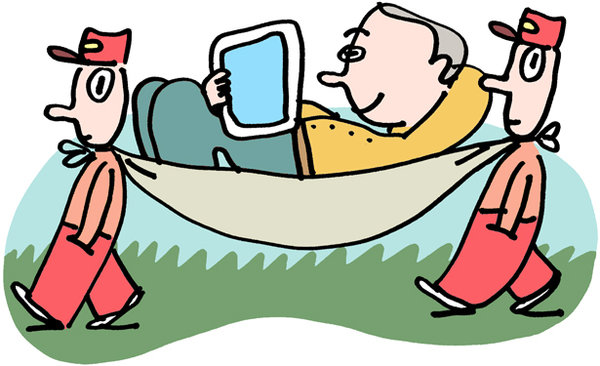Farhad Manjoo misinterprets the history of tech adoption
 Writing in the New York Times, Farhad Manjoo decries “A Tech Boom Aimed at the Few, Instead of the World.” But he ignores the history of how successful tech adoption inevitably spreads experiences to everyone.
Writing in the New York Times, Farhad Manjoo decries “A Tech Boom Aimed at the Few, Instead of the World.” But he ignores the history of how successful tech adoption inevitably spreads experiences to everyone.
According to Manjoo:
The tech industry used to think big. . . . These were dreams of vast breadth: The founders of Microsoft, Google, Facebook and many of the rest of today’s tech giants were not content to win over just some people to their future. . . . They planned to radically alter how the world did business so the impossible became a reality for everyone. . . .
We are once again living in a go-go time for tech, but there are few signs that the most consequential fruits of the boom have reached the masses. Instead, the boom is characterized by a rise in so-called on-demand services aimed at the wealthy and the young.
This ignores history to a breathtaking degree. Microsoft wanted to make money from an operating system. Google wanted to compete with other search engines. Facebook wanted to connect college students. The big dreams came later.
I have been analyzing consumer adoption of technologies since 1997. Remember, first, that technology adoption is a Darwinian struggle. Most startups fail. For one thing, tech that arrives too soon (remember Apple’s Newton?) fails even if the idea behind it succeeds later when the timing is right.
But decades of experience show that when personal technology does succeed, it does so in one of two ways:
- When tech starts out expensive, elites adopt it. Businesspeople adopt it for productivity, like broadband Internet, GPS devices, cell phones, or smart phones. Or affluent people adopt it for entertainment, like AOL, DVD players, HDTV. Either way, what is expensive becomes cheaper and then spreads to the masses, first in developed countries, then in the world. There will be nearly 5 billion people with mobile phones this year; that’s pretty democratic.
- When tech starts out cheap or free, young people adopt it. Social networks are a great example — they started skewed toward youth. At Forrester, I watched social network adoption march through the generations year by year, to the point where there are now a billion people on Facebook, most of them no longer young.
Manjoo cites two services now targeting affluent consumers that could one day reach the masses. But they are not notable. All startups are like this.
All startups start targeting a niche, typically a niche with money. “We want to change the world” doesn’t attract startup capital and it never has.
All startups with any initial success broaden their appeal beyond that niche, reaching older, less technically adept, or less affluent consumers.
All successful technologies get cheaper, attracting low cost providers who roll out to less affluent consumers around the world.
The big trends in tech right now — the sharing economy, 3D printing, mobile apps, drones, cloud — are all on a path to change the whole world. As often happens, the innovators that started them will not be the same as the companies that democratize them. But they will touch everyone, just as all successful technologies inevitably do.
Illustration: Stuart Goldenberg in The New York Times